Lori Burns

Lori Burns
Research Scientist
lori.burns@chemistry.gatech.edu
Quantum Chemistry Software
IRI Connections:

lori.burns@chemistry.gatech.edu

Keith Werle is Managing Director of the Business Analytics Center and a Professor of the Practice in Georgia Tech Scheller College of Business.
With over thirty years of experience in industry and consulting, his background spans a broad range of business disciplines including finance, analytics, strategy, and corporate development. He has consulted in many industries and for a diverse range of clients, from venture capital backed technology start-ups to global Fortune 50 companies. His client work focused on business analytics and the application of advanced data visualization, multi-dimensional performance analysis, data mining and machine learning techniques in strategy development, decision support, and operations management.
Keith.Werle@Scheller.Gatech.edu
Data Mining; Visualizations
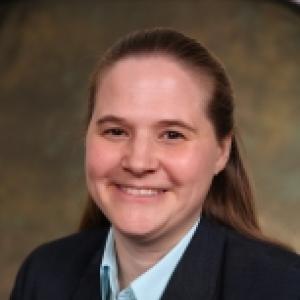
Dr. Julie Linsey is an associate professor at Georgia Institute of Technology in the Mechanical Engineering Department. She earned a PhD and MS in mechanical engineering from The University of Texas at Austin and a BS in mechanical engineering from the University of Michigan. From 2008 to 2012, she worked as an assistant professor at Texas A&M University. Her research focus is on systematic methods and tools for innovative design with a particular focus on concept generation and design-by-analogy. She has co-authored over fifteen technical publications including two book chapters and holds two patents.

Dr. Felix J. Herrmann is Georgia Research Alliance Eminent Scholar in Energy and a professor at the Georgia Institute of Technology with appointments in the Schools of Earth and Atmospheric Sciences, Computational Science and Engineering, and Electrical and Computer Engineering. Dr. Herrmann will be the 2019 Distinguished Lecturer of the Society of Exploration Geophysicists (SEG).
Dr. Herrmann holds a M.Sc. and Ph.D. in Engineering Physics from the Delft University of Technology. He completed his postdoctoral studies at Stanford University and MIT before becoming a professor at the University of British Columbia's Department of Earth, Ocean, and Atmospheric Sciences. He joined the faculty of the Georgia Institute of Technology in October 2017.
During his career, Dr. Herrmann has worked on the development of the next-generation of industrial acquisition and computational imaging technologies designed to improve the image quality in complex geological areas at vastly reduced costs and environmental impact. Aside from driving innovations, by leveraging recent developments in the mathematical and computational sciences, Dr. Herrmann has extensive experience working with industry. At the University of British Columbia, he was the founder and director of the Seismic Laboratory for Imaging and Modelling (SLIM), which hosted the industry Consortium SINBAD. Under his guidance, SLIM became a world leader in the successful integration of transformative scientific developments, such as compressive sensing, randomized linear algebra, and machine learning, into innovative approaches that tackle the most challenging imaging problems. With his move to the Georgia Institute of Technology, Dr. Herrmann plans to broaden his research program to include other imaging modalities. Dr. Herrmann was a long program participant at UCLA's Institute for Pure and Applied Mathematics in the Fall of 2004 and has been involved in public-private partnerships around the world. He serves on the editorial board of Geophysical Prospecting and on the SEG Research Committee.

Elizabeth Cherry is an Associate Professor in the School of Computational Science and Engineering. Her research involves modeling and simulation, high-performance computing, and numerical methods. In particular, her group is focused on computational modeling of cardiac arrhythmias, including model development, validation, and parameter estimation; design and implementation of efficient solution methods; implementations on traditional parallel and GPGPU architectures; integration with experiments through data assimilation; and applications to understand the mechanisms responsible for particular complex dynamical states. She is a member of the editorial board of Chaos and a review editor for Frontiers in Physiology. She has served on the organizing committees of the SIAM Conference on Applications of Dynamical Systems in 2017, Dynamics Days 2020, and the Biology and Medicine Through Mathematics Conference 2018 and 2019 and on the program committees for the International Workshop on Hybrid Systems 2019 and 2020 and the International Congress on Electrocardiology 2018 and 2019. She received a BS in Mathematics from Georgetown University and a PhD in Computer Science from Duke University focusing on efficient computational methods for solving partial-differential-equations models of electrical signals in the heart. Her research is supported by the National Science Foundation and the National Institutes of Health
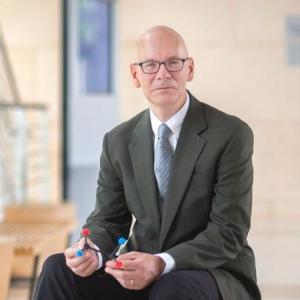
The main focus of Collard's research is the molecular self-assembly in polymers which allows for the formation of new supermolecular architectures that take on new functions and promise potential benefits and novel applications. Currently, his group is studying surfactants, spontaneously assembled monolayers, and liquid crystals. Materials under study include conjugated electronically conductive polymers and new functional polyesters. Techniques used to construct and probe the structure of our supramolecular assemblies including: synthesis, electrochemistry, thermal analysis, X-ray diffraction and microscopy.
404.894.4026
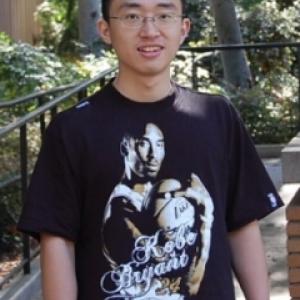
Conan Cao is a member of the Institute for Data Engineering and Science.

Chris Gu is an Assistant Professor of Marketing in the Scheller College of Business at Georgia Institute of Technology. His research focuses on the quantitative study of the behaviors of individuals and organizations under various types of information constraints and economic structures, with the goal of improving their well-being. His current work focuses on understanding how consumers search for products under partially revealed information, how consumers adopt sustainable technologies under the influence of government policies, how companies decide about internal technology adoption and upgrade, and how social network connections influence individual crowdsourcing behaviors. He is an AMS Mary Kay Foundation Doctoral Dissertation Competition Finalist, and his research has received the ISMS Doctoral Dissertation Award.
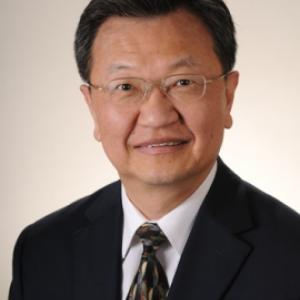
Ben Wang is Professor Emeritus in the H. Milton Stewart School of Industrial and Systems Engineering at Georgia Tech. In addition, Dr. Wang previously served as the Executive Director of the Georgia Tech Manufacturing Institute.
Dr. Wang's primary research interest is in applying emerging technologies to improve manufacturing competitiveness. He specializes in process development for affordable composite materials. Dr. Wang is widely acknowledged as a pioneer in the growing field of nanomaterials science. His main area of research involves a material known as "buckypaper", which has shown promise in a variety of applications, including the development of aerospace structures, improvements in energy and power efficiency, enhancements in thermal management of engineering systems, and construction of the next-generation of computer displays.
Dr. Wang served on the National Materials and Manufacturing Board (NMMB). NMMB is the principal forum at the U.S. National Academies for issues related to innovative materials and advanced manufacturing, and has oversight responsibility for National Research Council activities in these technology areas. Dr. Wang is a Fellow of the Institute of Industrial Engineers, the Society of Manufacturing Engineers, and the Society for the Advancement of Material and Process Engineering.
Because of his contributions to advanced manufacturing and materials, Dr. Wang was invited to deliver a presentation to the U.S. National Research Council Review Panel in support of the U.S. National Nanotechnology Initiative in 2005. In 2012, he was invited to give testimony before the National Academies Committee on Manufacturing Extension Partnership. In 2012 he was invited to participate in the Roundtable on Strengthening U.S. Advanced Manufacturing in Clean Energy in the White House.
In addition to authoring or co-authoring more than 240 refereed journal papers, he is a co-author of three books: Computer-Aided Manufacturing (Prentice-Hall, 1st Edition, 2nd Edition, and 3rd Edition), Computer-Aided Process Planning (Elsevier Science Publishers), and Computer Aided Manufacturing PC Application Software (Delmar Publishers).
Dr. Wang earned his bachelor's in industrial engineering from Tunghai University in Taiwan, and his master's in industrial engineering and Ph.D. from Pennsylvania State University.
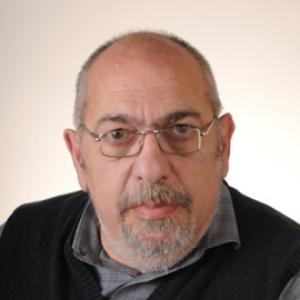
Arkadi Nemirovski is the John P. Hunter, Jr. Chair in the H. Milton Stewart School of Industrial and Systems Engineering at Georgia Tech.
Dr. Nemirovski's research interests focus on Optimization Theory and Algorithms, with emphasis on investigating complexity and developing efficient algorithms for nonlinear convex programs, optimization under uncertainty, applications of convex optimization in engineering, and nonparametric statistics.
Dr. Nemirovski has made fundamental contributions in continuous optimization in the last thirty years that have significantly shaped the field. In recognition of his contributions to convex optimization, Nemirovski was awarded the 1982 Fulkerson Prize from the Mathematical Programming Society and the American Mathematical Society (joint with L. Khachiyan and D. Yudin), the Dantzig Prize from the Mathematical Programming Society and the Society for Industrial and Applied Mathematics in 1991 (joint with M. Grotschel). He was elected a Member of the National Academy of Engineering (2017) and a Fellow of the American Academy of Arts and Sciences (2018).
In recognition of his seminal and profound contributions to continuous optimization, Nemirovski was awarded the 2003 John von Neumann Theory Prize by the Institute for Operations Research and the Management Sciences (along with Michael Todd). He He continues to make significant contributions in almost all aspects of continuous optimization: complexity, numerical methods, stochastic optimization, and non-parametric statistics.
Dr. Nemirovski earned a Ph.D. in Mathematics (1974) from Moscow State University, the Doctor of Sciences in Mathematics (1990) from the Supreme Attestation Board at the USSR Council of Ministers, and the Doctor of Mathematics (Honoris Causa) from the University of Waterloo, Canada (2009).